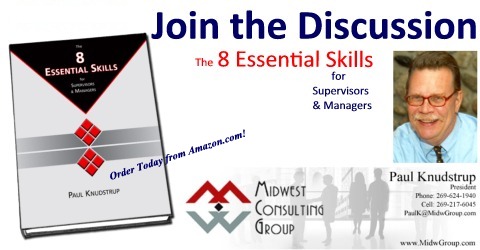Last time we suggested taking a look at which of your working relationships could use some attention. If you’ve been truly honest in your self-examination, you probably have discovered one or more key relationships could stand some improvement. Perhaps you’ve neglected one of your high-performers to focus more attention on a marginal performer. Or you may tend to avoid dealing with a co-worker who kind of rubs you the wrong way or who you frankly don’t like much.
Whatever the situation, unless you do something to change the equation, the relationship is unlikely to improve. It might continue to deteriorate if you do nothing, but it’s unlikely to improve on its own. So, what could you do?
You might begin by asking yourself several questions:
- Why is this relationship important to me?
- Why do I feel the relationship could be better than it is right now?
- What would be the ideal relationship with this person?
- What would I be willing to do in order to improve it?
Once you’ve examined the current state of the relationship, it’s time to decide what you want to do, and when you intend to do it. Realize that there may be no single “best” thing to do or say; the key here is being willing to try different things and keep at it as long as it takes to see the relationship improve.
While there certainly are plenty of practical suggestions (see Skill 3) in The 8 Essential Skills for Supervisors & Managers, here are a few that might be a good place to start:
- Be patient! – most problem relationships did not get that way overnight; they won’t improve overnight either.
- Be interested in the other person’s ideas, suggestions; ask for their opinion.
- Be flexible – be willing to try different approaches until you sense things are moving in the right direction
- Be clear about expectations – yours and theirs, but do so in a non-confrontational way
- Re-recruit your high performers from time to time; they will appreciate the attention and value your commitment to building the team
- Realize that changing the relationship is up to you!
As Stephen Covey so eloquently said, “seek first to understand, then to be understood.” If we think more about understanding the other person, seeking their perspective, asking for their ideas, and seriously listen to what they have to say, that cannot help but move the relationship in the right direction.
Don’t you think so?
Paul
